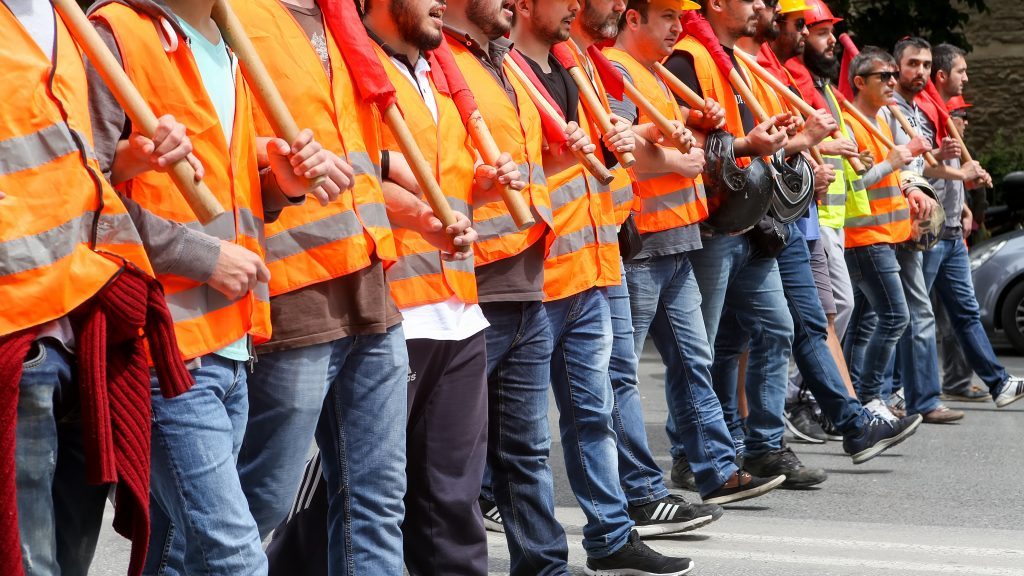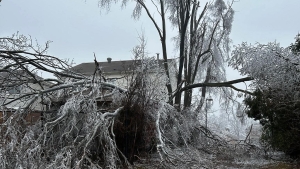Unionized plumbers, pipefitters and welders in Ontario’s ICI sector are to vote on a strike mandate today (April 12) with wages the main issue.
But their counterparts on the employer bargaining team, however, say negotiations have gone amicably so far and that discussions on wages have only just started.
UA Local 663 business manager Ross Tius offered a status update to his members in an April 8 memo that outlined the offer from the employer bargaining agency, calling it “unacceptable.” He said the provincial negotiating team for the union will be advocating for the strike mandate to strengthen the union’s bargaining position.
“Let’s get real,” Tius said in an interview. “If you want to bargain, let’s bargain. We’ve got inflationary issues that are eating away at our paycheques.”
By legislation all three-year ICI contracts in the province expire April 30.
Tius wrote to UA members that the Ontario Pipe Trades Council negotiating committee had just completed two days exchanging proposals and came to agreement on minor language revisions before embarking on monetary discussions.
The union negotiators asked for $5 increases for each of the three next years, according to the memo, calculated to add up to over 20 per cent over three years, while the contractors responded with proposed raises of 4.25 per cent, 2.25 per cent and 1.50 per cent, totalling eight per cent.
Tius said the employers’ offer puts the UA behind the wage packages of the IBEW and the Ironworkers – the electrical deal was for a total wage hike of 8.6 per cent over three years, while the Ironworkers signed for 9.0 per cent over three years with an additional 0.5 per cent for the Toronto local.
“Our proposal was in line with the obvious inflationary concerns that continue to gouge a great portion of paycheques,” Tius wrote.
“This proud membership deserves better.”
On the employer side, Dave Holek, chair of the Mechanical Contractors Association of Ontario’s negotiating committee, said he felt the two days of negotiations that took place April 7 and 8 went “very well,” ending with wording essentially agreed upon and the two teams agreeing to put offers on the table in anticipation of resuming negotiations April 19. The employers’ offer of eight per cent over three years was “reasonable,” he said.
“Literally we spent two minutes on the wages before we broke off at the end of the day on Thursday,” said Holek. “That was their first offer and our first offer.
“The talks were going great and we still believe they’re going to go great.”
The offers put on the table were the “first exchange of many,” Holek said. “We’ve got till May 1.”
He said his team planned to “take the high road’ as bargaining continues.
The uncertainty does not seem to be restricted to the UA trades. While earlier this year very few negotiators said they anticipated difficulty in reaching deals, Patrick McManus, executive director with the Ontario Sewer and Watermain Construction Association, now says negotiations are bumpy.
He is involved in bargaining with operating engineers, labourers and teamsters.
“If you look across the different sectors, there’s been very few settlements,” McManus said. “And usually to this point, you see a lot of the sectors are into settlement.
“So I think it’s a much different time and scenario this time around with the demand for skilled trades labour, and also with a host of the other problems that we’re dealing with including inflation.”
It’s a “difficult” round of bargaining, McManus said, but negotiators remain hopeful of reaching a settlement by the end of the month.
“But it’s a much different time around this time around and that’s really being reflected in the bargaining process,” he said. “Everybody’s waiting to see what everybody else settles for. It’s been a very, very slow move so far.”
In his sector the negotiators will be at the table for a few days this week, and then they will see where the parties stand by the end of the week and will schedule more days of talks if necessary, McManus said.
In other sectors, the Bricklayers Employee Bargaining Agency representing bricklayers and stonemasons were scheduled to spend three days negotiating with the employers this week.
Meanwhile, LIUNA reported on an earlier settlement in the residential sector.
The Masonry Council of Unions Toronto and Vicinity, a council of unions consisting of Bricklayers, Masons Independent Union of Canada Local 1 and LIUNA Local 183, announced it has reached a settlement with the Masonry Contractors Association of Toronto. The parties agreed to renew the province-wide residential collective agreement on Jan. 21, and the agreement was ratified on Feb. 5.
The deal included wage increases of 15.556 per cent in all classifications, meaning a total package increase of $10 for a bricklayer, $9.18 for a bricklayer’s assistant, $7.68 for a masonry auxiliary worker-tarper and $8.78 for a stucco installer.
Watch the Daily Commercial News for more updates on this story.
Follow the author on Twitter @DonWall_DCN.











Recent Comments
comments for this post are closed